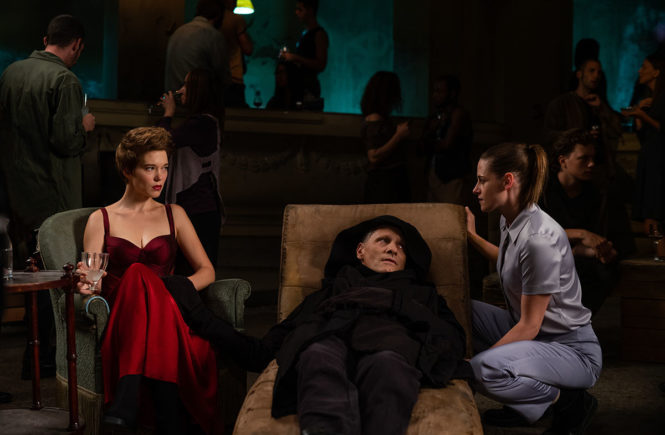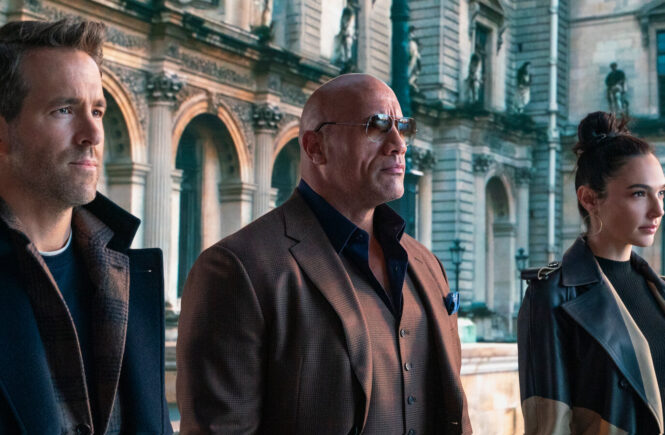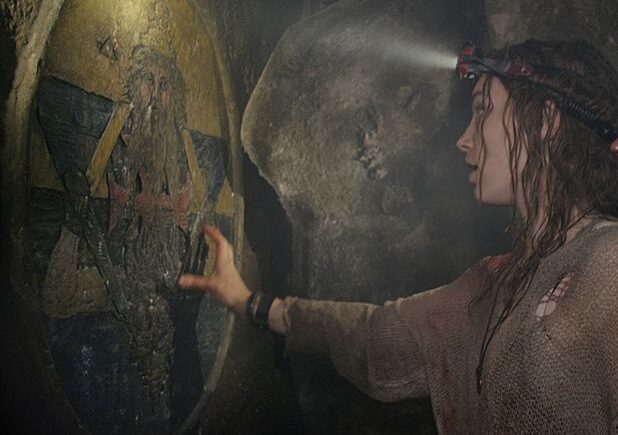
There is a lot to love in this film, much of it is fascinating; however, much of it is also frustrating. What I am glad about, though, is that I got to sit-down and watch a new Cronenberg film. And if you’re like me, then this may be worth while for you to see.
“Crimes of the future” deals with a time when humans are rapidly evolving. People like Saul Tenser (Viggo Mortensen) have the ability to create new organs which can fundamentally change their physiology and deviate them from something we would consider human. The government does not like this and tries to prevent new evolutionary traits from being passed down to offspring, cementing the changes in the human genetic line. Saul Tenser and Caprice (Lea Seydoux) are artists in this dystopian world. Caprice tattoos the new organs that Tenser develops and then publicly performs surgery to excise those organs, putting them on display. In their work, they literally put their hearts on the table.
One of the most fascinating parts of the film is the production design by Carol Spier, who has been working with Cronenberg for the past four decades. There are these alien-like machines, seemingly inspired by the work of H.R. Geiger, that help people cope with the pains of their changing bodies. They seem quite sophisticated and yet the environment in which the film takes place is extremely run down and bare, no-one is seen using cars, and even the insides of people’s homes feel bleak. What caused such decay, or even how far into the future we are, is never mentioned but all this gives the film an air of foreboding, sadness, and strange mystery that was extremely effective.
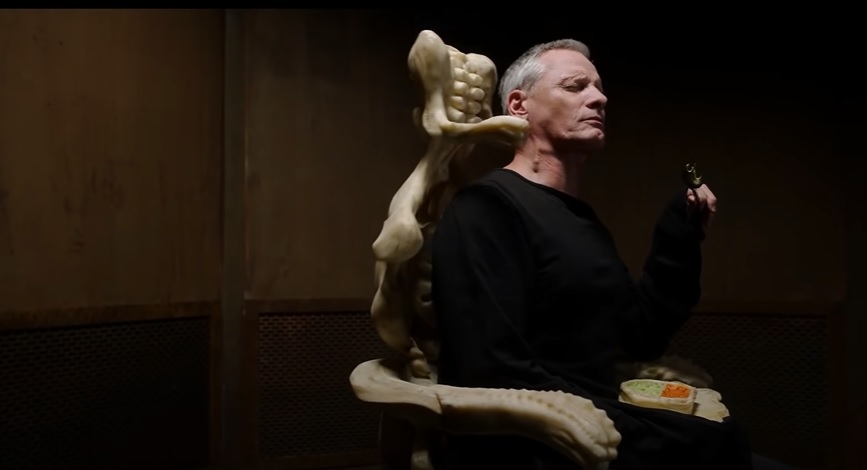
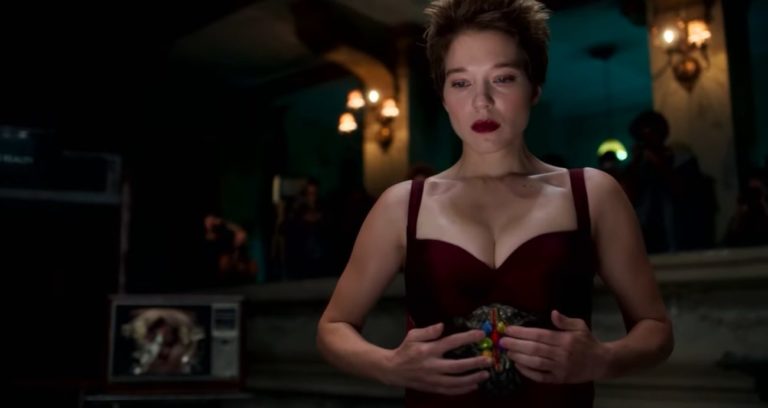
The cinematography of Douglas Koch, gives the film a really intimate yet dark feeling, almost like you’re in a cave. The colors are also very sensual, particularly during the scenes of surgery.
The music by Howard Shore is something else which I really loved. The score is brilliantly realized with what seems to be these synthetic sounds coupled with oddly sounding violins. The entire soundtrack gives life to so many of the scenes in the film, making them feel strange, horrifying, and immediate.
As someone going into the medical field, I was enthralled by the surgeries performed and how they spoke about the ways the human body was changing and being regulated. The implications of what we see happening to the bodies in this film are vast and unheard of, and I loved seeing Cronenberg navigate these topics. Particularly, the very politized concept of government regulation over someone’s body and what people are allowed to take out or leave in. I also loved seeing the surgeries being performed in the future and how Cronenberg envisioned these moments. They are essentially akin to sex, in one scene the surgeon is even seen wearing a sensual red-dress. No anesthesia is given to those undergoing surgery as it seems they don’t sense much or any pain (or atleast they don’t sense pain as we do now), instead the incisions seem to cause a pleasurable experience. “Surgery is the new sex”. There is talk of “desktop surgeries”, and how anyone can perform surgery these days. We even see people cutting themselves up in back-alleys. All quite interesting and provocative.
I’ve just barely scratched the surface of what this film is dealing with. We meet Timlin (Kristen Stuart) and Wippet (Don McKellar) who run an organization that keeps track of new organs being developed. There are secret agents, undercover cops, backstabbing and deception, a terrorist organization, a ludicrously bizarre underground art scene, and much more. All under the backdrop of what exactly these humans are adapting to, it’s medical and philosophical implications, as well as the evolution of art itself.
This is where the frustration comes in. The movie runs under 2 hours and while some aspects felt well done, others felt undercooked and some felt overcooked. Kristen Stuart does a great job in her role as Timin, but I felt as though her character didn’t add much for the film and could’ve been cut down in favor of fleshing out another character like the cop (Welket Bungué) who I felt was more intriguing. There is also a side-plot involving a cosmetic surgeon who runs an “inner beauty” pageant that could’ve been cut out entirely.
The film fluctuates from really holding your interest to meandering through these side-plots and characters which ends up leaving some of the more interesting aspects of the story underexplored. I would’ve loved to have known more about the secret agents who go on a killing spree near the end of the film, why the government wants to stop humans from evolving, or even just to know and understand more about this bizarre future world. I felt as though my thoughts and conversations about this film after I watched it were more provoking and interesting than what I saw.
The acting and the technical aspects of the film are top-notch, but I was left oddly wanting more and less at the same time. There are moments where exposition is just dumped onto our laps and I was left scrambling to understand what a character just said. There seems to be a whole world and story beyond what we’re shown that sometimes feels more interesting that what we are seeing. It’s the unevenness of what we are given which really prevents this film from being great despite it dealing with great ideas in truly fascinating and unique ways.
Cronenberg is a master in the field and it was a joy to see a film by him again. I hope people go out to see it, and talk about it. It’s tone and pace won’t be for everyone, but it’s ideas are uniquely disturbing and provocative, which in itself deserves recognition.

